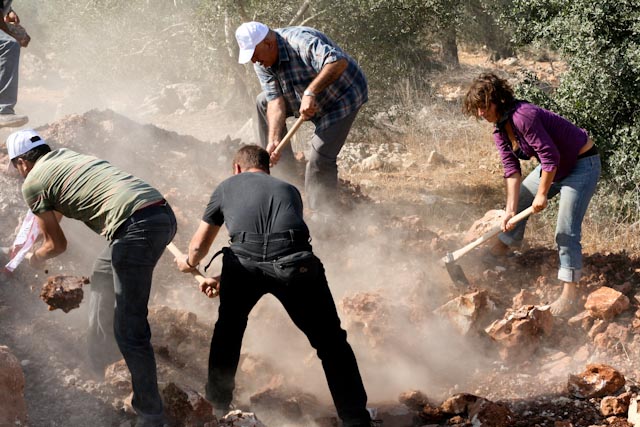Tag: Road Closure
-
Three teenagers arrested in Azzun in one week
23th July 2013 | International Solidarity Movement, Nablus Team | Azzun, Occupied Palestine Israeli forces continue their strike on the village of Azzun. Last week alone, three teenagers were arrested and one was handed a paper to go to the Israeli DCO (District Coordination Office). On Thursday 18th July, two young men, Yahya Ali Adwan…
-
Citizens of Jama’in Remove Roadblock
By Viktor Ibrahim and Meri Verdaguer Photographs by Vicky Blackwell 16 October 2012 | International Solidarity Movement, West Bank About thirty citizens from Jama’in, accompanied by around 15 international solidarity activists commenced the first stage in the removal of a roadblock on an agricultural road near to the village, just south of Nablus. The earth…
-
Israeli forces invade Kufr Qaddoum prior to planned protest
By Ben Greene 14 September | International Solidarity Movement, West Bank Just after noon on Friday 14th September, Israeli forces invaded the village of Kufr Qaddoum, prior to a demonstration due to begin at 1.15pm. The Israeli army and Border Police blocked a road in the village center, stopping villagers from attending Friday prayers at…

